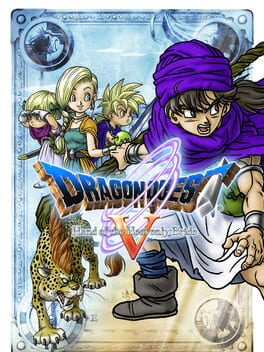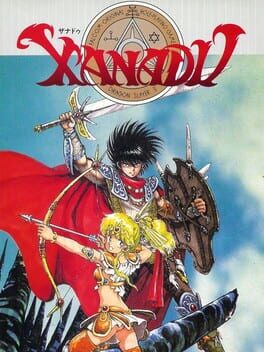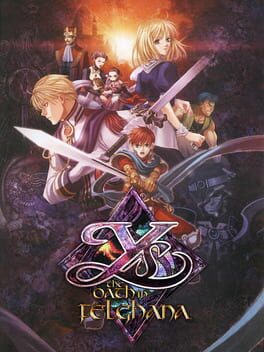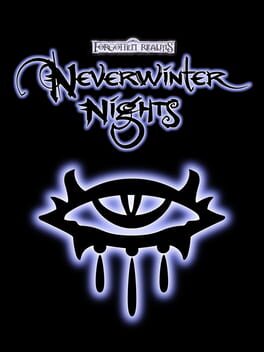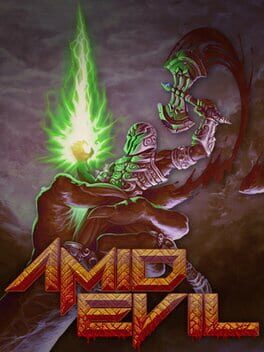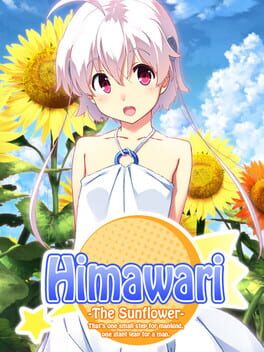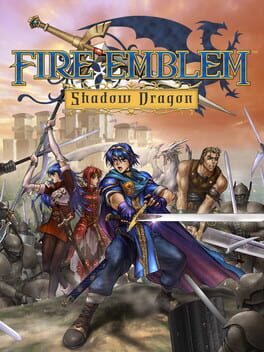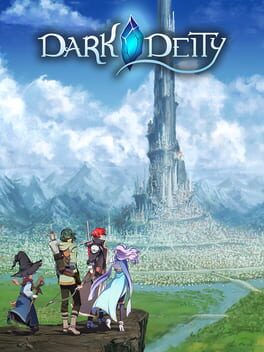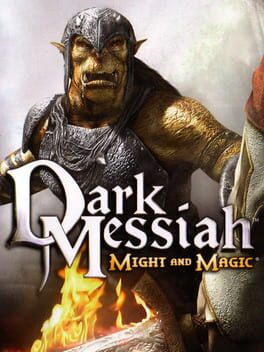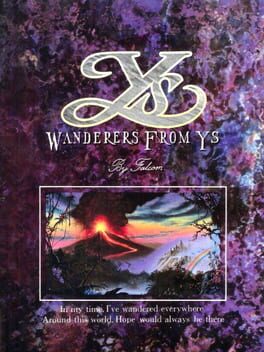kujoe_dirte
1985
The most influential game you've never played. One of the first huge Japanese commercial successes in action rpgs, very early metrodvania style game, very open, with a lot of pretty advanced gameplay systems for the time that wouldn't be seen in other games for upwards of 10 years.
But is it good? Not really, it's neat though.
But is it good? Not really, it's neat though.
Probably the "best" Ys game, good pacing, not too long, good music with some options for previous versions of the OST, extremely satisfying gameplay and bosses, and also the most difficult Ys game that also offers many difficulty options.
Despite this, I'm not sure if I can say it's really my favourite or not, Ys 8 and 9 are less balanced less tight experiences but I find I enjoyed them more still as experiences, but regardless Oath is more replayable and offers more room to master it's mechanics.
Despite this, I'm not sure if I can say it's really my favourite or not, Ys 8 and 9 are less balanced less tight experiences but I find I enjoyed them more still as experiences, but regardless Oath is more replayable and offers more room to master it's mechanics.
2001
2002
This game is nearly impossible for me to rate. It's kind of a mess, the base campaign is pretty bad, but the expansions and wealth of premium and player made content is staggering, and more importantly extremely varied despite all stemming from the same core system.
I've been reading D&D books since well before I was old enough to even be playing them, rulebooks, modules, and The Legend of Drizzt Books in particular all come to mind. In highschool there were others who I played with, ofc none of them knew the actual rules and not wanting to be a nerd I never corrected them and let it play it out as a silly sort of theater of the mind type thing with friends. Which, to be fair, is sort of the idea, the rules exist to facilitate storytelling.
That's also why I find D&D games fascinating, seeing how much of it is merely adapting the rules of the various editions, and how much emphasis is put on capturing the idea, mood, or setting of what TTRPGS are all about. Neverwinter Nights, I think, shines the most in both of these regards compared to other D&D games; for better and for worse. The game can be jank, some modules have super detailed extra rulesets pertaining to specific things like jousting or base building. And that's what I like about this game, it might be a jank mess, the main scenario is basically not worth playing, but a lot of it makes a more genuine attempt at realizing what D&D is and the purpose of rules and rulings in TTRPGS being to facilitate storytelling. And I think that's neat.
I've been reading D&D books since well before I was old enough to even be playing them, rulebooks, modules, and The Legend of Drizzt Books in particular all come to mind. In highschool there were others who I played with, ofc none of them knew the actual rules and not wanting to be a nerd I never corrected them and let it play it out as a silly sort of theater of the mind type thing with friends. Which, to be fair, is sort of the idea, the rules exist to facilitate storytelling.
That's also why I find D&D games fascinating, seeing how much of it is merely adapting the rules of the various editions, and how much emphasis is put on capturing the idea, mood, or setting of what TTRPGS are all about. Neverwinter Nights, I think, shines the most in both of these regards compared to other D&D games; for better and for worse. The game can be jank, some modules have super detailed extra rulesets pertaining to specific things like jousting or base building. And that's what I like about this game, it might be a jank mess, the main scenario is basically not worth playing, but a lot of it makes a more genuine attempt at realizing what D&D is and the purpose of rules and rulings in TTRPGS being to facilitate storytelling. And I think that's neat.
2022
Dark Souls 2: The Sequel
Too many bosses of questionable quality with reuse, a defensive stat with poorly communicated benefits that is virtually required (Vigor and damage scaling vs Adaptability), heavier emphasis on RPG elements and builds (with easy respeccing), fights that encourage hit trading unless using specific builds, stark contrast between boss and area difficulty (i.e. Elden Ring bosses are much harder, DS2 areas). I could go on but you get the idea.
Elden Ring shines in it's opening hours, the world is refreshing (at first) extremely visually striking, and the discovering of new locations, dungeons, and loot feel more substantial and feeds an enjoyable exploration experience. However this luster starts to wane the longer you play. The "chalice dungeons but somehow worse" start to become routine after a while, especially considering you only get 1 item of value from them, which given the build emphasis of this game 95% of these items will be useless to you. And it would seem that after those initial hours of exploration most people eventually end up turning to the internet to simply look up where the items of value are rather than continue engaging in trivial, boring, reused areas and enemies. Heck, the fact that the most popular ending by far is one tied to a very long hidden quest chain shows pretty clearly most people play the game this way, which goes strongly against the exploration the first few hours of the game bring, and is being praised for.
Speaking of said open world, it sucks. Okay, okay. It looks incredibly striking, but in terms of actual content... ehhhhh. The souls style combat doesn't lend itself well to super open areas like this, and the horse combat being universally considered bad doesn't help with that. So all you have in that regard is the exploration, freedom, and sense of discovery. Which, I believe, for almost everyone dies out after a while when the rewards system of the game, and the over-reliance on reused enemies and areas start to click with people.
That all being said I do think Elden Ring has examples of really good exploration, some of the best in any game... in the legacy dungeons. Leyndall and Stormveil are two of the finest areas in any fromsoft game, with an absurd amount of secrets and paths through to find and explore, same goes for a lot of the underground. The only singular moment the entire overworld has even close to this is that first ride down the Siofra Elevator. And considering most of the game is said overworld, which pretty quickly starts to blend into a standard AAA open world only without annoying map and compass markers, and with a much more artistic and visually striking landscape.
The other biggest issue I have with Elden Ring pertains to the gameplay. Primarily in regards to game balance, and the bosses. Everyone knows the game has balance issues between the endgame and certain builds/weapons being too much superior to the others. But those problems are exacerbated by the new boss design. Very aggressive, poor numbers balancing, overuse of delay and aoe attacks, all multi-foe bosses being non-designed, input reading combined with input buffering, unavoidable damage. None of these individually are new to the series by any means, plenty of bosses are super aggressive, mainly in Bloodborne and some in DS3, same for delay attacks, some input reads, and input buffering has always existed. But combine it all with poor number balancing, and poor weapon/arts balancing, and make these all true of the majority of main bosses. Take Radagon, who isn't close to being one of the worst bosses in the game by any means. His teleport is borderline unavoidable damage, the delay on his grab is comically long it looks silly, plenty of his attacks have added aoe or delayed aoe, he blocks many build types (i.e. holy, status effects, overly slow colossal weapons etc.) And he is probably the best of the end-game bosses.
Elden Ring does add some flavor to what is essentially DS3, but it's pretty mixed imo. Mainly jumping. Defensively it is pretty bad, with little indication or consistency on what moves can or can't be avoided with jumps. Whereas offensively, jump attacks are the only thing keeping colossal weapons usable for super aggressive bosses. Jump attacks also encourage something the series has largely been moving towards dis-encouraging, which is disengaging. Combine enemies with combos that last too long, no tanginable benefit for most defensive actions besides damage mitigation, with spells, weapon arts, and jump attacking, and your best option for many bosses is to just... leave when they do their super long combos, and come in for a big hit with a jump attack or art which also contributes more to posture breaking. Sure you can criticize DS3 for R1 spam, but I'll take that over the way Elden Ring encourages unfun playstyles to tackle many of it's bosses.
Arbitrary favourite bosses: Godrick, Loretta, Rykard... just them.
Least Favourite: All the multi-foe bosses (special shout out to Godskin Duo, and the three rotten Crystallan's in a random mine), Melania, Maliketh, Fire Giant, all the dragons after the first one, probably a lot more.
One last random point in this rambling about why this game is mid, is that the souls series already had better self-driven exploration and feeling of discovery than virtually all other games, and the open world is actively detracting from that by merely stretching the game out, diminishing impactful moments and encounters by repeating them, and delegating random items important for certain builds or playstyles to garbage tier mini-dungeons with no indication of what you will get, turning that initial impressive exploration into a chore pretty quick as the player picks up on all of these factors.
Unironically DS2 is better as a gameplay experience since it embraces it's RPG elements more and waste's less time.
Too many bosses of questionable quality with reuse, a defensive stat with poorly communicated benefits that is virtually required (Vigor and damage scaling vs Adaptability), heavier emphasis on RPG elements and builds (with easy respeccing), fights that encourage hit trading unless using specific builds, stark contrast between boss and area difficulty (i.e. Elden Ring bosses are much harder, DS2 areas). I could go on but you get the idea.
Elden Ring shines in it's opening hours, the world is refreshing (at first) extremely visually striking, and the discovering of new locations, dungeons, and loot feel more substantial and feeds an enjoyable exploration experience. However this luster starts to wane the longer you play. The "chalice dungeons but somehow worse" start to become routine after a while, especially considering you only get 1 item of value from them, which given the build emphasis of this game 95% of these items will be useless to you. And it would seem that after those initial hours of exploration most people eventually end up turning to the internet to simply look up where the items of value are rather than continue engaging in trivial, boring, reused areas and enemies. Heck, the fact that the most popular ending by far is one tied to a very long hidden quest chain shows pretty clearly most people play the game this way, which goes strongly against the exploration the first few hours of the game bring, and is being praised for.
Speaking of said open world, it sucks. Okay, okay. It looks incredibly striking, but in terms of actual content... ehhhhh. The souls style combat doesn't lend itself well to super open areas like this, and the horse combat being universally considered bad doesn't help with that. So all you have in that regard is the exploration, freedom, and sense of discovery. Which, I believe, for almost everyone dies out after a while when the rewards system of the game, and the over-reliance on reused enemies and areas start to click with people.
That all being said I do think Elden Ring has examples of really good exploration, some of the best in any game... in the legacy dungeons. Leyndall and Stormveil are two of the finest areas in any fromsoft game, with an absurd amount of secrets and paths through to find and explore, same goes for a lot of the underground. The only singular moment the entire overworld has even close to this is that first ride down the Siofra Elevator. And considering most of the game is said overworld, which pretty quickly starts to blend into a standard AAA open world only without annoying map and compass markers, and with a much more artistic and visually striking landscape.
The other biggest issue I have with Elden Ring pertains to the gameplay. Primarily in regards to game balance, and the bosses. Everyone knows the game has balance issues between the endgame and certain builds/weapons being too much superior to the others. But those problems are exacerbated by the new boss design. Very aggressive, poor numbers balancing, overuse of delay and aoe attacks, all multi-foe bosses being non-designed, input reading combined with input buffering, unavoidable damage. None of these individually are new to the series by any means, plenty of bosses are super aggressive, mainly in Bloodborne and some in DS3, same for delay attacks, some input reads, and input buffering has always existed. But combine it all with poor number balancing, and poor weapon/arts balancing, and make these all true of the majority of main bosses. Take Radagon, who isn't close to being one of the worst bosses in the game by any means. His teleport is borderline unavoidable damage, the delay on his grab is comically long it looks silly, plenty of his attacks have added aoe or delayed aoe, he blocks many build types (i.e. holy, status effects, overly slow colossal weapons etc.) And he is probably the best of the end-game bosses.
Elden Ring does add some flavor to what is essentially DS3, but it's pretty mixed imo. Mainly jumping. Defensively it is pretty bad, with little indication or consistency on what moves can or can't be avoided with jumps. Whereas offensively, jump attacks are the only thing keeping colossal weapons usable for super aggressive bosses. Jump attacks also encourage something the series has largely been moving towards dis-encouraging, which is disengaging. Combine enemies with combos that last too long, no tanginable benefit for most defensive actions besides damage mitigation, with spells, weapon arts, and jump attacking, and your best option for many bosses is to just... leave when they do their super long combos, and come in for a big hit with a jump attack or art which also contributes more to posture breaking. Sure you can criticize DS3 for R1 spam, but I'll take that over the way Elden Ring encourages unfun playstyles to tackle many of it's bosses.
Arbitrary favourite bosses: Godrick, Loretta, Rykard... just them.
Least Favourite: All the multi-foe bosses (special shout out to Godskin Duo, and the three rotten Crystallan's in a random mine), Melania, Maliketh, Fire Giant, all the dragons after the first one, probably a lot more.
One last random point in this rambling about why this game is mid, is that the souls series already had better self-driven exploration and feeling of discovery than virtually all other games, and the open world is actively detracting from that by merely stretching the game out, diminishing impactful moments and encounters by repeating them, and delegating random items important for certain builds or playstyles to garbage tier mini-dungeons with no indication of what you will get, turning that initial impressive exploration into a chore pretty quick as the player picks up on all of these factors.
Unironically DS2 is better as a gameplay experience since it embraces it's RPG elements more and waste's less time.
2019
2021
It's buggy as all hell, has a very poor story, and it's deviations from fire emblem style gameplay are largely confusing and only serve to complicate the simple math which I consider pretty integral to FE strategy.
In spite of that I still enjoyed myself well enough, FE is my favorite series gameplay wise so even a pretty poor attempt at it's style was fairly enjoyable and I wasn't looking for a story heavy game in the first place.
In spite of that I still enjoyed myself well enough, FE is my favorite series gameplay wise so even a pretty poor attempt at it's style was fairly enjoyable and I wasn't looking for a story heavy game in the first place.
2001
Generally a quite solid rpg primarily in story, setting, and gameplay. The weakest element of the main game is the characterization, only really Yuna, Tidus, and Auron come across as particularly well realized characters (Though if I'm being honest FF usually has pretty weak characters).
In spite of enjoying my time in the main game by the end I hated it, purely on account of how egregiously bad the side/optional content in this game is. No exaggeration it is easily the worst content in any rpg I've ever played plus it is very time consuming plus it ruins the final stretch of the game as the process of doing any of the side content will make you absurdly overpowered for the final dungeon/bosses.
Some people may not consider it fair to judge the game for this but I can't ignore how much it impacted my personal playthrough of the game.
In spite of enjoying my time in the main game by the end I hated it, purely on account of how egregiously bad the side/optional content in this game is. No exaggeration it is easily the worst content in any rpg I've ever played plus it is very time consuming plus it ruins the final stretch of the game as the process of doing any of the side content will make you absurdly overpowered for the final dungeon/bosses.
Some people may not consider it fair to judge the game for this but I can't ignore how much it impacted my personal playthrough of the game.
2011
Unquestionably a classic and has been very influential on gaming since it's release. Everyone has already sung it's praises so I'll focus on the things that I think hold it back and make it somewhat weaker than other fromsoft games in this style.
Firstly the game seems very unfinished, after Anor Londo the game takes a huge dip in quality all around. I know this is one of the most common criticisms people levy at the game but I feel it's still understated. It's not an insignificant part of the game and the fact that it's generally considered sub-par/bad should hurt the games rankings more than it does. I'd also say this applies to the majority of the totally optional areas of the game barring the Painted World.
This ties into the above point but the connectivity of the world is also somewhat overstated and largely only applies to the first half of the game. I don't think anyone is arguing against the fact that the first half eclipses the later in quality, I only point this out to justify my rating. After Anor Londo the last few levels play out very linearly, with maybe the exception of New Londo which has some largely pointless connections to another area. Also in spite of the connectivity the game as a whole has a largely linear progression >ring bells >Anor Londo >4 Lords. The main way you can deviate from this is the order you ring the bells and the order you fight the lords, and 99% of people are going to do the bells in intended order anyway. While I personally don't mind this the non-linear aspect of the game is brought up a lot in spite of being mostly limited to the order you a couple of things and whether or not you skip certain bosses/areas in the first half (which again, generally only people who are experienced with the game will do).
Another minor point which is much less relevant now is the fact that the game doesn't run very well on it's original consoles.
Last minor point pertains to character creation/builds. I'm no expert in this department but having played through the game many times certain builds/weapons seem needlessly complicated to actually pull off, and the lack of ability to respec in a game where your character is mostly based on what equipment they have (which require certain stats to use) is very dumb. Honestly to some extent I think the game would be better without some of it's rpg elements and focusing more on your equipment loadout.
I do very much enjoy this game and fromsoft in general I just felt the need to detail some of the games many issues and why I consider it to be a very flawed classic.
Firstly the game seems very unfinished, after Anor Londo the game takes a huge dip in quality all around. I know this is one of the most common criticisms people levy at the game but I feel it's still understated. It's not an insignificant part of the game and the fact that it's generally considered sub-par/bad should hurt the games rankings more than it does. I'd also say this applies to the majority of the totally optional areas of the game barring the Painted World.
This ties into the above point but the connectivity of the world is also somewhat overstated and largely only applies to the first half of the game. I don't think anyone is arguing against the fact that the first half eclipses the later in quality, I only point this out to justify my rating. After Anor Londo the last few levels play out very linearly, with maybe the exception of New Londo which has some largely pointless connections to another area. Also in spite of the connectivity the game as a whole has a largely linear progression >ring bells >Anor Londo >4 Lords. The main way you can deviate from this is the order you ring the bells and the order you fight the lords, and 99% of people are going to do the bells in intended order anyway. While I personally don't mind this the non-linear aspect of the game is brought up a lot in spite of being mostly limited to the order you a couple of things and whether or not you skip certain bosses/areas in the first half (which again, generally only people who are experienced with the game will do).
Another minor point which is much less relevant now is the fact that the game doesn't run very well on it's original consoles.
Last minor point pertains to character creation/builds. I'm no expert in this department but having played through the game many times certain builds/weapons seem needlessly complicated to actually pull off, and the lack of ability to respec in a game where your character is mostly based on what equipment they have (which require certain stats to use) is very dumb. Honestly to some extent I think the game would be better without some of it's rpg elements and focusing more on your equipment loadout.
I do very much enjoy this game and fromsoft in general I just felt the need to detail some of the games many issues and why I consider it to be a very flawed classic.
